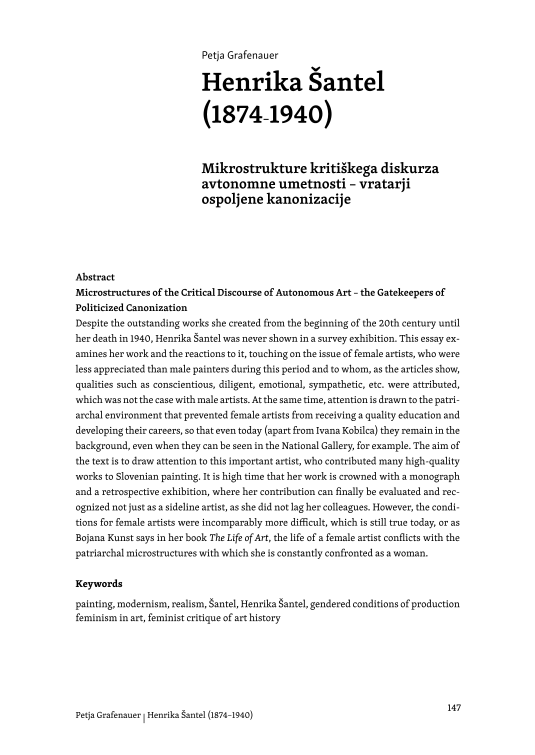Despite the outstanding works she created from the beginning of the 20th century until her death in 1940, Henrika Šantel was never shown in a survey exhibition. This essay examines her work and the reactions to it, touching on the issue of female artists, who were less appreciated than male painters during this period and to whom, as the articles show, qualities such as conscientious, diligent, emotional, sympathetic, etc. were attributed, which was not the case with male artists. At the same time, attention is drawn to the patriarchal environment that prevented female artists from receiving a quality education and developing their careers, so that even today (apart from Ivana Kobilca) they remain in the background, even when they can be seen in the National Gallery, for example. The aim of the text is to draw attention to this important artist, who contributed many high-quality works to Slovenian painting. It is high time that her work is crowned with a monograph and a retrospective exhibition, where her contribution can finally be evaluated and recognized not just as a sideline artist, as she did not lag her colleagues. However, the conditions for female artists were incomparably more difficult, which is still true today, or as Bojana Kunst says in her book The Life of Art, the life of a female artist conflicts with the patriarchal microstructures with which she is constantly confronted as a woman.




